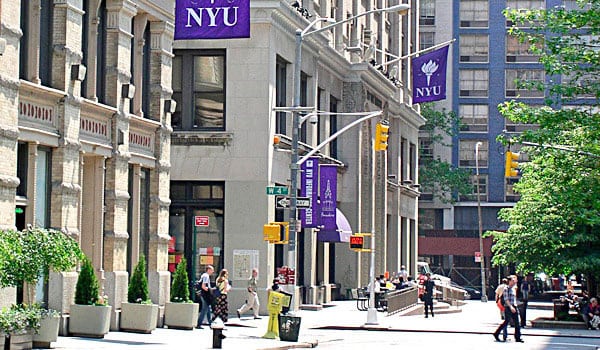
August 16, 2018; New York Times
New York University announced yesterday that it would offer free tuition to every student at its top-10-ranked medical school without regard to need or merit. The whole plan will cost $600 million, and it has already raised 75 percent of that. Tuition at the school formerly cost $55,000 a year, and the measure will cover not only the 443 students currently enrolled, but also all future students. Kenneth and Elaine Langone of Home Depot contributed $100 million toward the fund.
NYU is the first top-ranked medical school to go entirely tuition-free, although there is a similar, merit-based tuition waiver program at UCLA’s David Geffen School of Medicine. That fund cost a more modest $100 million to establish, but it covers only 20 percent of students at the school. On the other hand, UCLA also covers living expenses for those who win the scholarships, which the NYU program does not.
Why this step? The university points to the overwhelming debt students accrue, which drives them to choose highly paid specialties over those in need of more graduates like family practice, pediatrics, and research. According to the Association of American Medical Colleges, the median debt for medical students upon graduating in 2017 was $192,000.
Sign up for our free newsletters
Subscribe to NPQ's newsletters to have our top stories delivered directly to your inbox.
By signing up, you agree to our privacy policy and terms of use, and to receive messages from NPQ and our partners.
This commitment by NYU will go a long way towards bolstering its credibility with lawmakers, who last December voted into law the nation’s first limited tax of 1.4 percent on earnings on endowments as part of the 2017 federal tax bill. Evidently, now that the norm of not taxing nonprofit endowments has been broken, lawmakers could potentially seek to increase the tax in the future. A letter sent by NYU to Congress last year outlines the university’s spending on student relief of debt:
NYU spent approximately $552 million last year in institutional funds specifically for student aid (undergraduate, graduate and doctoral) purposes. This is grant aid, which does not have to be paid back. With regard to undergraduates specifically: over the last decade, the budget for financial aid for undergraduates has tripled—it currently exceeds $300 million/year. The average grant NYU gives incoming freshmen who receive aid has also more than tripled over that period—from approximately $8,900 to over $30,000. Approximately 57 percent of full-time undergraduate students receive some form of university (institutional NYU funds), federal or state grant for the current academic year. And virtually all of NYU’s financial aid is need-based.
Of course, the $552 million in financial aid must be balanced against the $2.276 billion in tuition collected (in 2015, latest year available, according to the school’s Form 990 filing). Effectively, about 25 percent of NYU’s tuition revenue has been used to support its financial aid commitments. The new policy of free tuition for medical students, of course, will likely increase this percentage.
The letter goes on to say, “NYU takes seriously the issue of college cost, and its impact on students and families. In addition to the expansion of scholarship aid, we know we must devise long-term strategies to alter the trajectory of college costs at NYU. This will be one of our highest priorities over the coming years.” Now thousands of medical students and the general public, who are in need of a balanced and affordable medical array of services, will be able to take that commitment right to the bank.—Ruth McCambridge











